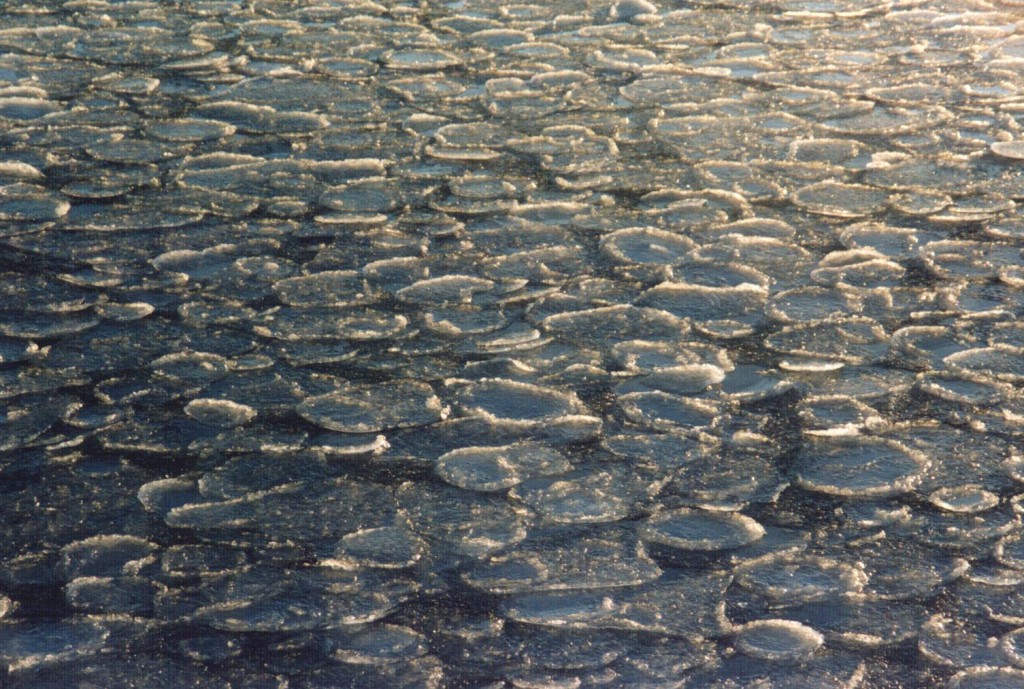
Can you make “boring” math or physics exciting by relating it to the adventures of a research cruise in Antarctic? Elin can!
My friend Elin is currently on a research cruise in Antarctica and you really need to check out her blog. She is writing about life at sea, including the most beautiful photos of sea ice. Today’s post is called “ice or no ice” and describes the first couple of days of the research cruise. Elin combines the catching narrative with exercises and experiments that will be conducted by at least 30 schools all over Norway! And maybe you can use some of her posts, exercises and experiments in your teaching, too?
Today, for example, the exercises are all about ice. Depending on how much brain power you want to invest and how much prior knowledge your students have, you could for example do an exercise about Archimedes’ principle, calculating how much of an ice floe is visible above the water’s surface, and how many scientists you could put on it before people start getting wet feet. Or, more challenging, you could work with real data that Elin provides to practice your statistics and look at the annual cycle of sea ice in Antarctica. Or you could even set up differential equations for how ice thickness increases over time.
There will be new exercises every Monday for the next two months. How exciting!
Elin’s blog, “På tokt i Antarktis“, is available in English, Norwegian and Swedish. So you can use it not only to practice your maths and physics, but also your language skills! :-)
Btw, if you got hooked and can’t nearly get enough of reading about that research cruise, there is a second blog that tells you, for example, about the different kind of New Year’s Eve the scientists and crew had before heading off to Antarctica. Also very much worth a read!
